From mega yachts to multimillion-dollar villas, the city of Limassol is known as a Mediterranean playground for Russian oligarchs
Limassol, Cyprus, has earned the nickname "Limassolgrad" for its large Russian population.
Cyprus' ties to the EU and its formerly lax citizenship requirements enticed many to move there.
Today, you'll find mega yachts in Limassol's marina, and Russian billboards and fur shops in the city.
The tiny Mediterranean island of Cyprus sits at a crossroads, between southern Europe and the Middle East.
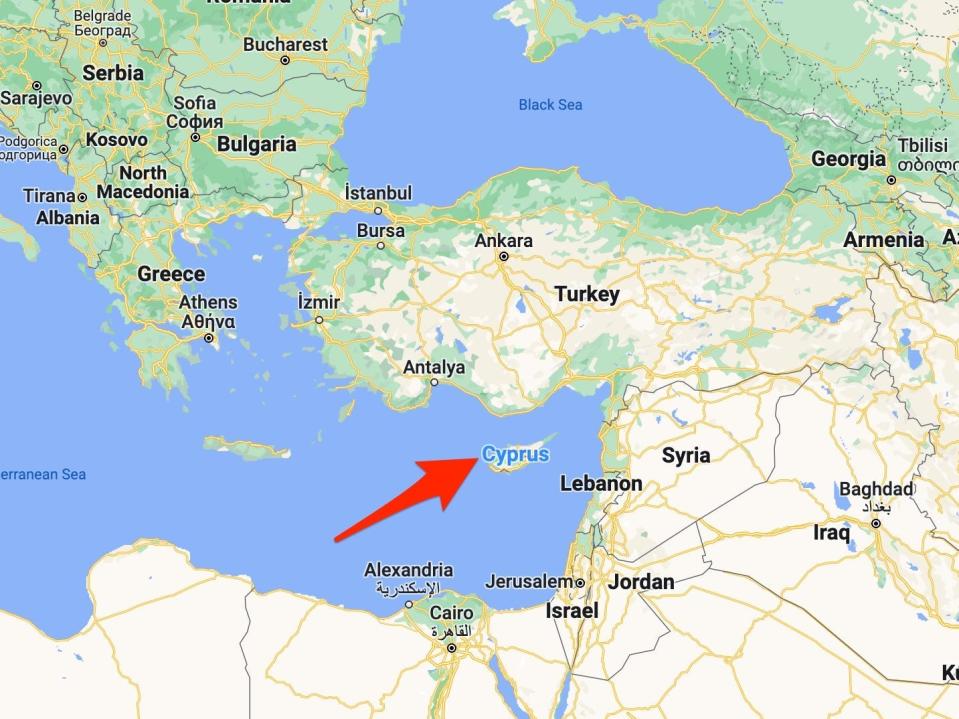
Today, Cyprus lures European vacationers with its golden beaches, Mediterranean cuisine, and rich culture.
But it hasn't always been as idyllic. Cyprus has passed through many hands — and its history has been riddled with conflict.
After more than three centuries of Ottoman rule, Cyprus was annexed by the British in 1914 and became a British colony by 1925, according to the BBC's timeline of the nation's history. Five years after Greek Cypriots began a guerilla war against the British in 1955, the BBC notes, the nation became independent as its Greek and Turkish occupants agreed upon a constitution.
However, decades of tensions between the nation's Greek and Turkish-Cypriot communities culminated in war by 1974, with Turkish forces invading the north of the island and occupying a third of the country. As a result, the nation was split in two, with the north — or the Turkish Republic of Northern Cyprus as it's recognized by Turkey — under Turkish-Cypriot rule, and the south — recognized internationally as Cyprus — under Greek-Cypriot rule.
While there have been talks of possible reunification over the years, the island remains divided today, and a "no man's land" enforced by the United Nations acts as a buffer zone between the north and south. Restrictions along the border eased in 2003, and a year later Cyprus joined the EU.
The country is predominately home to a Greek-Cypriot community, but it's also known for its large Russian population — the majority of which live in the city of Limassol.

Estimates vary for the exact population of Russian residents in Cyprus. The country's 2011 census had more than 10,000 Russian-born residents, according to the Financial Times. And today, outlets like The Guardian report that over 40,000 Russians live in Cyprus.
While the Russian population in Cyprus sounds small — there are approximately 1.2 million people living in Cyprus, according to figures from the World Population Review — the Russian influence in the nation has extended past numbers. In 2017, Russian oligarchs in the country created their own Russian political party, Euractiv reported. And throughout the country, it's not hard to find Russian speakers, billboards, shops, and restaurants.
But, according to The Guardian, the majority of Cyprus' Russian population is located in the port city of Limassol, on the country's southern coast.
Cyprus' second-most populated city, Limassol, has earned the nickname "Limassolgrad" for its high concentration of Russian residents.
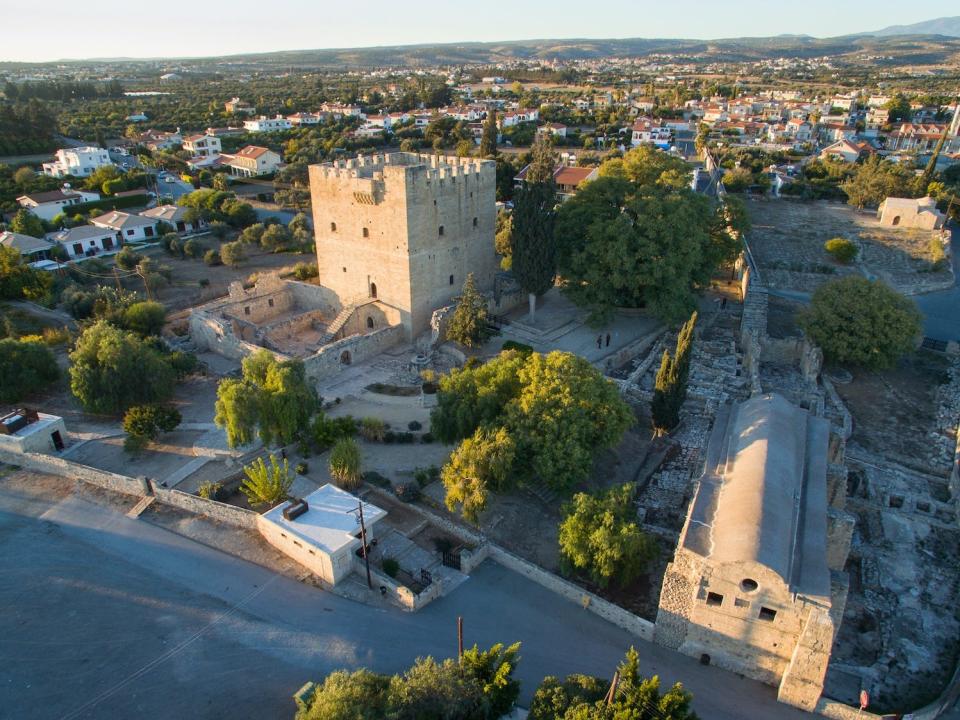
The sunny city is known for its castle, Limassol Castle, where the conqueror of Cyprus, King Richard the Lionheart, got married, according to Cyprus Land. Limassol is also home to a large public park with a zoo and amphitheater and an array of museums.
But these attractions aren't the only draw for many of the country's rich Russian residents.
In the 1990s, powerful and rich leaders arrived in Cyprus with suitcases reportedly filled with cash.

After the end of the Soviet Union, powerful leaders like Serbian President Slobodan Milošević arrived in Cyprus with cash in hand, according to a 2018 Wall Street Journal article.
Banks opened, condos were built, and many wealthy Russian individuals arrived for both tourism and residence, the Wall Street Journal reported.
By 2010, Cyprus banks had a disproportionate amount of money thanks to its new residents — deposits exceeded the country's annual economic output five times, according to the Wall Street Journal.
But in 2013, Cyprus' economy experienced a near collapse during Europe's financial crisis. The island was close to bankruptcy and sought an emergency 10 billion euro, or $11 billion, loan from the EU, according to Reuters.
The measures hit large depositors — many Russian individuals and companies — hard, according to the Financial Times. But it didn't stop many Russian residents from staying in Cyprus.
While the salty ocean breeze and hot sun are enticing, what appeals to many wealthy individuals are the country's favorable tax laws (and formerly, its lax citizenship requirements).

Following its near financial collapse, Cyprus revamped its citizen-by-investment program, which was originally launched in 2007, according to Al Jazeera and France24. At the time, anyone willing to pay at least 2 million euros, or around $2.2 million, on property could earn Cyprus citizenship. Essentially, the scheme allowed the rich to buy an EU passport.
Out of 2,544 people who received a passport through the program between 2017 and 2019, almost half were Russian, according to a 2020 Al Jazeera investigation. And they included at least nine oligarchs, who each are worth more than $1 billion, according to Al Jazeera. As of 2020, Cyprus has received $8 billion from the program — with much of that coming from new Russian residents, according to Al Jazeera.
The program has since been scrapped, but it's not just relaxed citizenship requirements that have lured wealthy individuals to the nation; Cyprus also has appealing tax laws.
In a 2017 survey of Russian business owners in Cyprus, the overwhelming majority said the "single biggest advantage of Cyprus as a business destination" was the country's tax regime. This tax regime includes elements like an exemption on disposal of securities, no inheritance tax, and no capital gains tax, according to the survey by the Cyprus-Russian Business Association.
Cyprus became a haven for Russian investors, and accusations of money laundering followed, prompting the country to ax its controversial citizen-by-investment program in 2020.
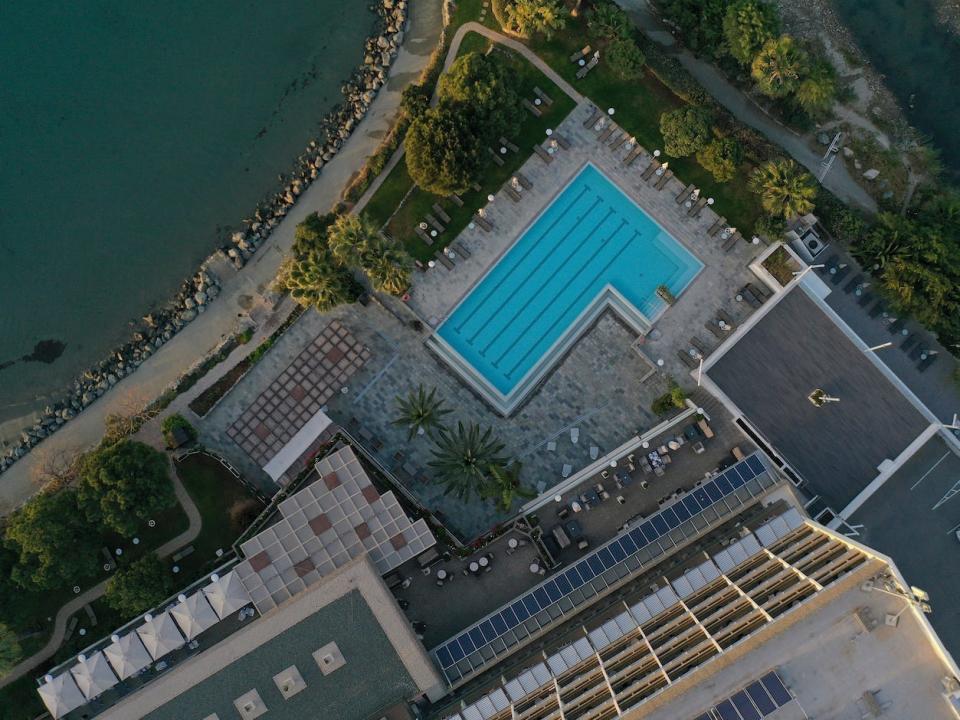
Thanks to EU citizenship, some wealthy Russian individuals who reside in Cyprus have an easier way to get black money into the European Union, according to Al Jazeera.
"Criminals are endangering Europe's security or want to engage in money-laundering here," Vera Jourova, a vice president of the European Commission in 2018, told Al Jazeera. "We do not want Trojan horses in the Union."
In response to pressure from the EU, Cyprus tightened the rules of its citizen-by-investment program in 2019 and 2020, according to Al Jazeera. Applicants who had previously been rejected for citizenship in other EU nations were banned from applying along with applicants facing criminal investigation, those who had received a prison sentence for serious offenses such as bribery or tax evasion, and politically exposed persons, according to Al Jazeera.
But in October 2020, Cyprus abandoned the program following accusations that criminals used it to launder money, Reuters reported.
Walk around Limassol, and you'll see the Russian community's influence all over the city.

Elements of Russian influence can be spotted across the streets of Limassol.
According to The Guardian, in parts of Limassol, Russian is heard just as often as Greek.
Billboards advertise apartment complexes in both Greek and Russian, and some restaurants serve Russian beer and cuisine.
Shiny, new luxury apartment buildings and five-star hotels dot Limassol's horizon.
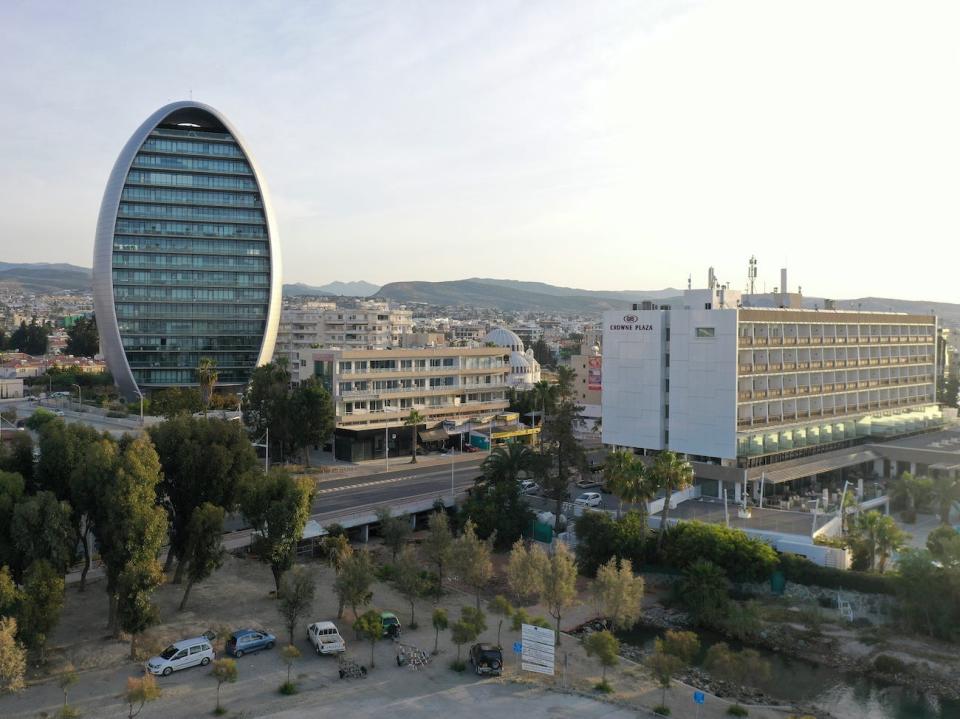
Before Cyprus scrapped its popular citizen-by-investment program, a number of apartment buildings and villas were built in Limassol in the 2010s to house potential new residents as part of the city's "property development boom fuelled by Russian money," according to a 2018 Guardian article.
These expensive properties helped Cyrpus generate over 8 billion euros, or $8.8 million — much from its new Russian residents, according to Al Jazeera.
As a result, luxury apartment complexes quickly filled the skyline.
There are also Russian schools, newspaper stands selling Russian-language newspapers, and boutiques filled with mink coats.

According to a 2013 Reuters article, Limassol's business district caters to its Russian residents. Beyond typical jewelry stores, there are luxury fur stores — selling coats that aren't often needed for much of the year in the Mediterranean sun. As of 2013, there are also three Russian-language schools, and radio stations that share news and updates in Russian, according to Reuters.
Between the restaurants and shops are law firms and businesses that help Russians learn how to gain citizenship, do business, and stow their wealth on the island, according to the Financial Times.
One of the biggest signs of wealth in Limassol can be found in the city's marina, where mega yachts line the docks.

Opened in 2014 by President Nicos Anastasiades, Limassol's 24 million euro (around $26.5 million) marina is filled with multimillion-dollar yachts, according to The Guardian.
And while the ships boast luxe furnishings, many of the boats' owners are unnamed. Instead, they're owned by private holdings held under company names, The Guardian reported.
"Our aim is to become the Monte Carlo of the eastern Mediterranean," Nikiforos Pampakas, the marina's marketing manager, told The Guardian in 2018. "Right now, I think we are the Cannes of this part of the world. Most of our clients are Russian-speaking."
Limassol is also home to rows of luxury villas — many of which are owned by rich Russian residents.
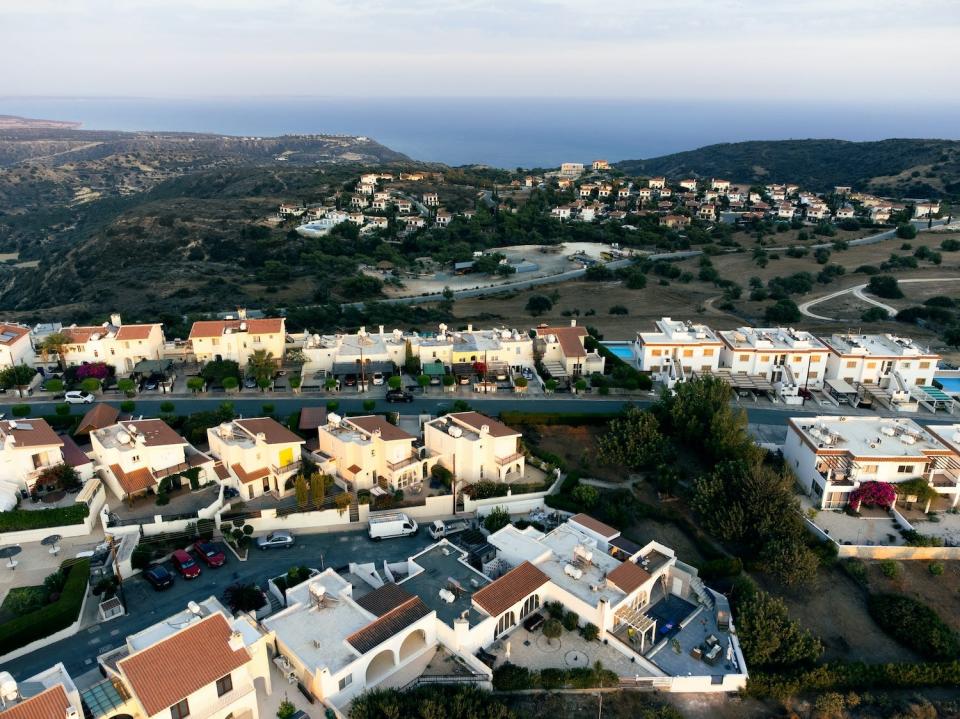
Do a quick search of real estate in Limassol, and you'll find villas selling for millions of dollars.
One ultra-modern, six-bedroom villa in Limassol is listed for 4.3 million euros, or about $4.7 million, on Prime Property Group; another villa costs 13.5 million euros, or about $14.8 million, with private beach access on Century 21 Global.
According to The Guardian, many of the purchased villas and homes sit empty since their owners prefer to reside in other places.
For 15 years, thousands gathered in downtown Limassol for the city's annual Cypriot-Russian Festival.
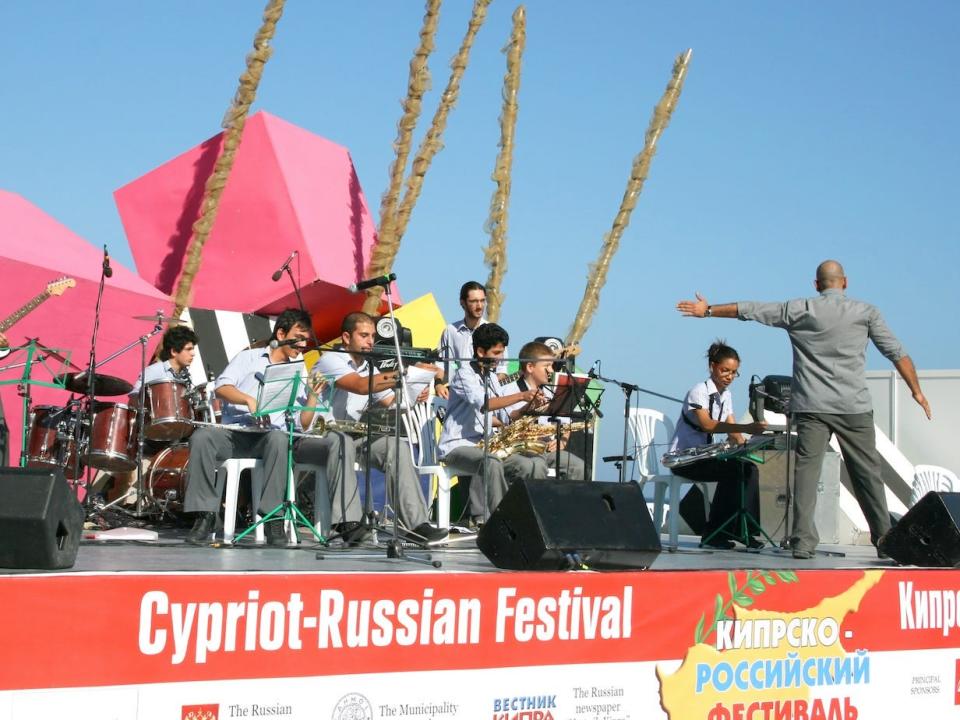
In 2019, the festival hosted its fifteenth year of celebrations, according to the festival's website, but the scheduled 2020 festival was put on hold due to COVID-19. At the time of writing, according to the festival's Facebook page, there aren't any plans for when the festival will restart.
Before it was put on pause, the two-day event had a fairy-tale parade, concerts from Cypriot and Russian children's groups, folk dance performances, and regional cuisine, according to the festival's website. In total, the event involved three concert stages, over 1,200 singers and dancers, and more than 12,000 visitors, according to the festival's website.
Even during COVID-19 lockdowns, Russians still flocked to Cyprus.
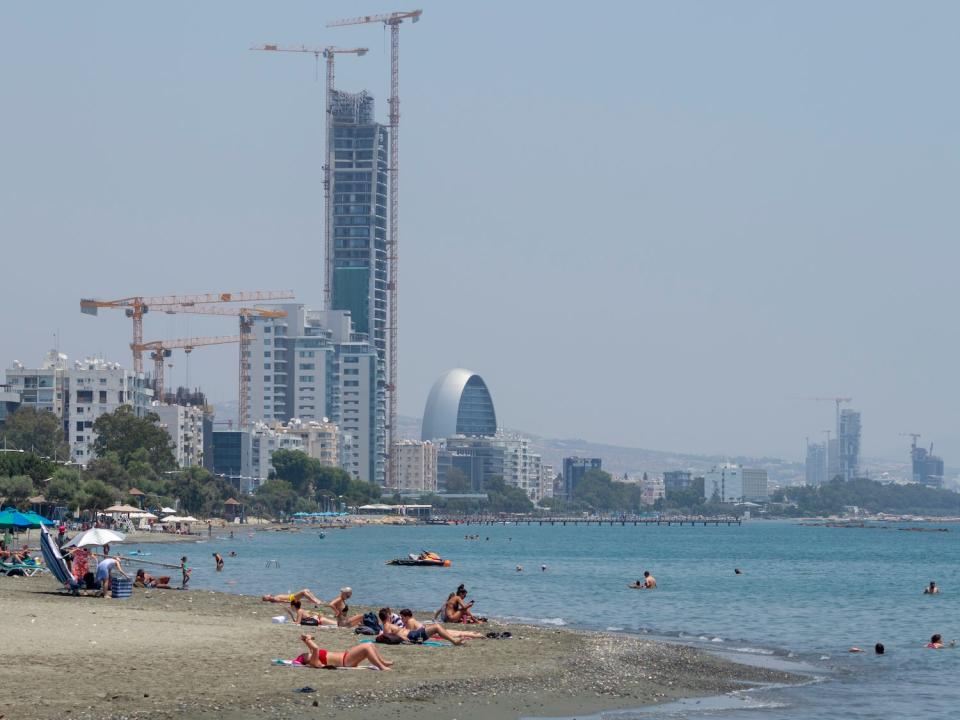
According to the Al-Monitor, Russian travelers are the country's second-largest tourist population behind the Brits.
Before COVID-19 in 2019, 782,000 out of Cyprus' 3.9 million tourists were Russian, the Al-Monitor reported.
While those numbers decreased during the 2020 and 2021 tourist seasons, Russian visitors still made up a significant portion of the country's tourists.
"The Russian market really is a major benefit to Cyprus, as the latest data shows that between June-August there were 320,000-340,000 Russian tourists this summer," Lakis Avraamides of the Famagusta Tourism Board told the Cyprus Mail in October 2021.
Since Russia started a war against Ukraine, Cyprus has distanced itself from its former ally.
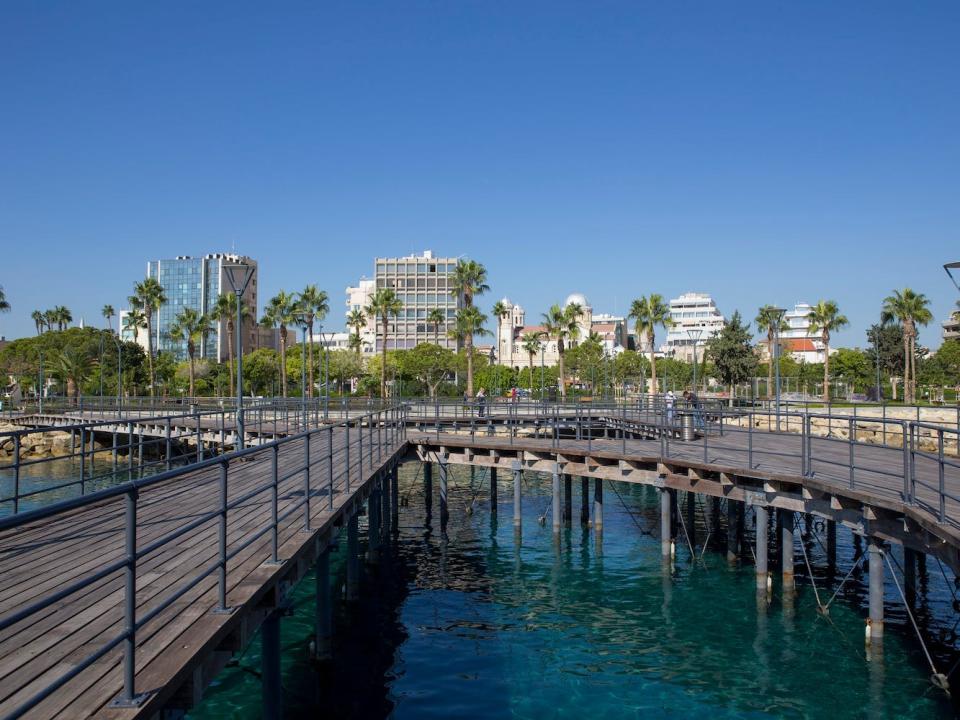
The war put Cyprus in a precarious situation. The country is part of the EU; meanwhile, a large portion of the country's revenue comes from Russia. And without Russian tourists, the country's economy could be damaged, The Guardian reported.
Initially, Cyprus resisted to sever ties with Russia. It avoided closing its airways to Russian planes and continued to allow Russian access to SWIFT until February 26, a global payments gateway, according to The Guardian.
But as violence escalated in Russia's invasion of Ukraine, Cyprus shifted gears. It is now offering humanitarian support to Ukraine, has banned Russian naval ships from refueling in Cypriot ports, and, today, more than 3,000 Ukrainian refugees are temporarily living in Cyprus, The Guardian reported.
Read the original article on Insider

